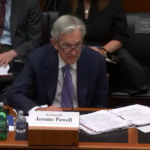As housing prices continue to rise, the age-old question of whether it makes more financial sense to rent or buy has become more complex. However, recent analysis by First American Financial Corporation suggests that in 27 of the top 50 U.S. real estate markets, the financial scales have tipped in favor of homeownership, largely due to the wealth-building benefits of equity accumulation.
“Despite the rise in house prices, this analysis shows that the wealth-building effect of home equity should not be overlooked in the rent-versus-own decision,” said Odeta Kushi, Deputy Chief Economist at First American. “As we navigate an uncertain housing market, one thing remains clear: the long-term financial benefits of owning a home can make it a worthwhile investment.”
The cost of homeownership
While renting costs are straightforward—simply the monthly rent payment—owning a home involves more complex calculations. Monthly ownership costs include mortgage payments, taxes, insurance, and potential repairs. First American’s analysis assumes a first-time homebuyer takes out a 30-year fixed-rate mortgage with a 5% down payment on a home at the 25th percentile sale price in their market during the second quarter of 2024.
In the initial analysis, renting appeared to be the more economical choice in 48 of the top 50 markets. However, when factoring in the potential benefits of equity accumulation through house price appreciation, owning became the financially superior option in 29 of those markets, including expensive rental areas like San Jose, and San Diego.
The San Jose example
San Jose, one of the most expensive real estate markets in the U.S., illustrates the shift in the rent-versus-own dynamic. A potential first-time homebuyer in San Jose, purchasing a home at the 25th percentile price of $1.1 million with a 7% mortgage rate, would face approximately $9,500 in monthly homeownership costs. However, with an 8% annual increase in house prices in the second quarter of 2024, the equity gained could reduce the effective cost of ownership to around $2,150 monthly—significantly lower than the median monthly rent of $2,700.
Contrasting with Austin, Texas
In Austin, Texas, where house prices declined by 1.2% year-over-year in the second quarter of 2024, the dynamic was different. A first-time homebuyer would face a total monthly ownership cost of approximately $3,270, which, after accounting for the depreciation, would effectively increase to $3,600—more than double the median rent of $1,530. In this case, renting remained the more financially prudent option.
Looking ahead
For Generation Z, who are beginning to enter their prime home-buying years, the prospect of rising home prices may seem daunting. However, as Kushi emphasizes, the long-term financial benefits of owning a home, particularly the wealth-building effect of home equity, should not be overlooked.
“Perhaps this is why Mark Twain famously advised, ‘Buy land, they’re not making it anymore,'” Kushi added. “The uncertainty in today’s housing market only underscores the importance of considering homeownership as a long-term investment strategy.”
As the housing market continues to evolve, prospective buyers should carefully consider both the immediate and long-term financial impacts of their decisions, weighing the cost of renting against the potential benefits of homeownership.
Click here for the report in its entirety.









